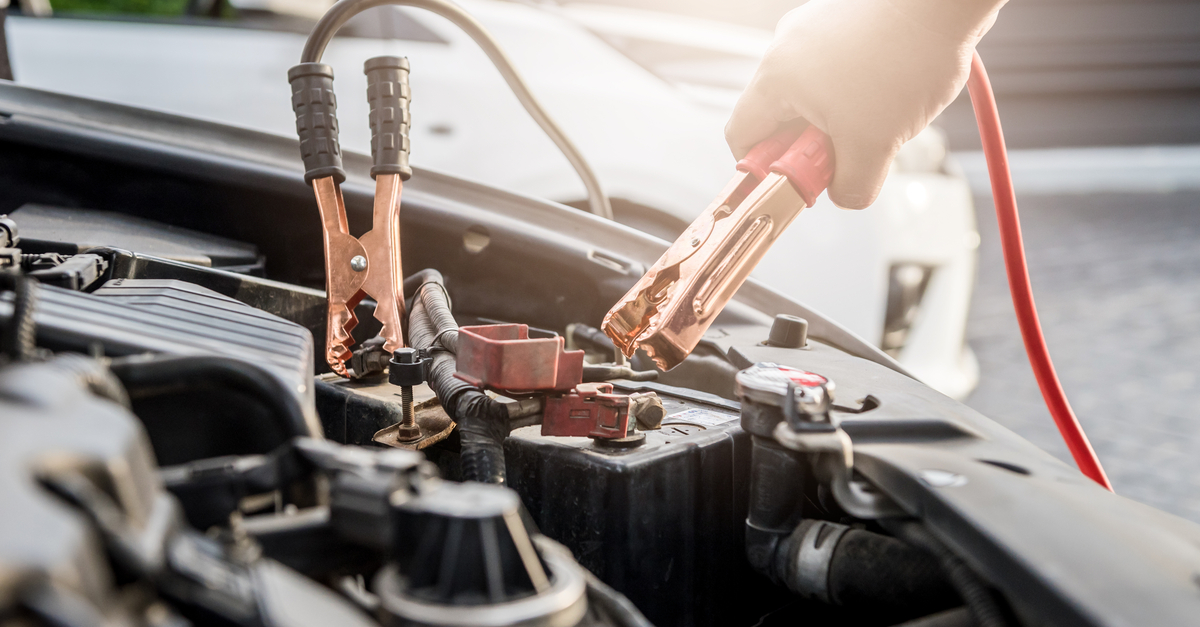Posted on 10/5/2021

It may look like it is a simple thing to start your car, but it is a complex series of events that happen to pump up the pistons. You have to turn the key to get the electrical system up to create a way for electricity to run. However, if the ignition fails, the vehicle will not start. There are several signs that can help you know if your vehicle is headed for ignition failure. However, some symptoms of this problem can indicate other problems as well. In any case, if you see any of these signs go to an auto repair shop and let a mechanic do a proper diagnosis. CAUSES OF IGNITION FAILURE AND THEIR REMEDIES 1. Faulty Alternator This is a device driven by a belt, which charges the vehicle’s battery and creates a spark in the engine. When the alternator is not working, it stops to power the battery. The battery will then be tasked with powering accessories normally charged by the alternator leading to draining of the battery power. Once the battery is drained, your car will not ... read more
Posted on 10/5/2021

On the best days, driving can be quite a hassle and the only thing that makes it easier is the system is working efficiently. However, sometimes, the steering wheel gets hard to turn. If that happens, your first instinct may be to visit the auto repair. Before doing that, let us examine some of what causes stiff steering. FAULTY STEERING RACK The steering rack is made of two things; the pinion and the rack. The steering rack attaches to the wheel through shafts and U-Joints. As time goes, and as continue driving the vehicle, the steering and the areas attached to the wheel start to wear out. If your driving wheel only gets stiff after starting the car, then that’s a clear indicator that the steering rack is the problem. If your steering rack is the problem, then the wheel should get freer as you drive. All the same, you should replace it as soon as possible before it worsens. BROKEN SERPENTINE BELT A cracked serpentine belt is also another reason why the driving wheel may be ... read more
Posted on 10/5/2021

Cold weather can damage your vehicle and require it to have auto repair services. Auto repair services will cost more money out of your pocket and mean much more time you need to spend on your car. Understanding the compromised car parts that will be exposed when the weather gets cold will help you better prepare for any repairs that you might need done and possibly protecting those areas of your vehicle. BATTERY The battery of your car will be the first thing to be affected by the cold weather because cold weather will drain any battery, not just including your car battery. That is why it will be the first thing to go and it will drain quickly if it is not strong. You can get your battery tested at your local auto store for free and even buy a new one right there with a multi-year guarantee so if anything happens to it then you can just get it changed for free and you will not have to worry. A battery is something that will be charged by your vehicle by running it more. The cold wea ... read more
Posted on 10/5/2021

Are you noticing any auto electrical problems recently? Is your vehicle’s electrical system running smoothly? No matter what vehicle you drive, you are likely to encounter at least one electrical problem during the automobile’s lifetime. Therefore, proper inspection of your electrical system is critical if you want your vehicle to run efficiently or even at all. Every system consists of various components including wires, fuses, relays, and other major electrical parts. If any of these parts forms a problem, you immediately risk both the safety and functionality of your vehicle. Whether it be powering the windows, mirrors, or even starting your vehicle, there is certainly a variety of issues that can occur which will indicate where the issue might be in your vehicle. To help you get an idea of what the necessary repair might be our team identified the top 6 electrical issues that we most commonly see in our automotive repair shop! Although we recommend seeing a professional ... read more
Posted on 10/5/2021
.jpg)
Many people can go the entirety of their ownership over their vehicle without ever changing the transmission fluid. Although some vehicles market a lifetime fluid on the transmission fluid and will advise against changing it so that the vehicle does not begin to slip while changing gears, experts would still highly recommend otherwise. WHEN TO REPLACE Changing your transmission fluid is advisable every 50,000 miles on average to maintain the vehicle in the best running conditions possible. Automatic vehicles use a torque converter to shift gears, and the torque converter and the transmission are not physically connected so the fluid is what allows the movement to continue between them. The fluid allows the mechanical spinning of the engine to be transferred to the transmission using fluid pressure and fluid friction. You need clean fluid to assure that there is no unwanted build-up or friction in this process. MAINTENANCE Maintaining the transmission fluid clean is the most i ... read more